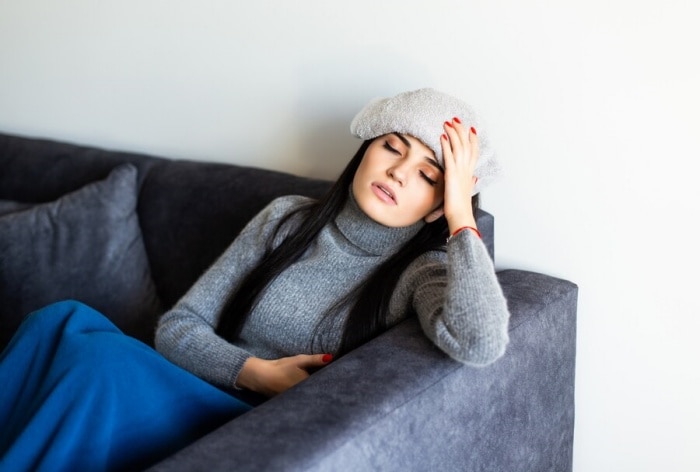Period pain or menstrual cramps may increase the discomfort during winter season and here is how to manage it.
Period pain is always discomforting and yes, we all ladies can agree to it. There is never a season when it is not not discomforting or irritating. However, the winter months often send down the chills at the onset of the menstruation cycle. Why does period pain or menstrual pain increase during the winter months? there is not just one but a few reasons for it:
- Blood arteries tend to constrict during colder months reducing blood flow.
- Often during the winter season, people get limited exposure to sunlight. That leads to a deficiency of vitamin D and increases pain during the period cycle.
- Vitamin D plays a role in regulating hormones, including those involved in menstruation. During winter, people have less exposure to sunlight, which can lead to vitamin D deficiency. This deficiency may contribute to more severe menstrual cramps.
- During colder months, people tend to be less physically active, which can contribute to increased menstrual cramps. Exercise helps release endorphins, which have pain-relieving properties, and also improves circulation, which can help alleviate cramps.
- Dehydration can contribute to muscle cramps, including menstrual cramps. During colder months, people may drink less water, which can lead to dehydration.
HOW TO MANAGE PERIOD PAIN IN WINTERS?
- Keep Yourself Warm: Wear layered clothes when stepping out. Keep the body warm. this may help to reduce the constriction of arteries.
- Keep Yourself Hydrated: Increase fluid intake to be wary of dehydration. It helps to flush out the toxins and manage hormonal imbalance.
- Heating Pad: Use heating pads to soothe the period pain especially during winter months.
- Nutrient-Rich Diet: Don’t just say it, take action. Include more vegetables and fruits in your diet. It will help to reduce deficiency symptoms and avoid bloating or indigestion.
- A Warm Shower: A warm and cosy shower can help to get some relief from discomfortimgaches and pain.
- Stay Active: Even though it may be tempting to stay indoors when it’s cold, try to incorporate some physical activity into your routine. Even light exercise, such as walking or yoga, can help relieve cramps.
- Maintain Vitamin D Levels: Talk to your doctor about getting a vitamin D test to determine if you have a deficiency. If you are deficient, consider taking a vitamin D supplement.
- Manage Stress: Find healthy ways to manage stress, such as yoga, meditation, or spending time in nature.
Wear Loose Clothing Opt for loose-fitting clothing, especially around the waist and abdomen, to avoid restricting blood flow. If your cramps are severe or interfere with your daily life, talk to your doctor. They may recommend other treatment options, such as hormonal birth control.
–>
